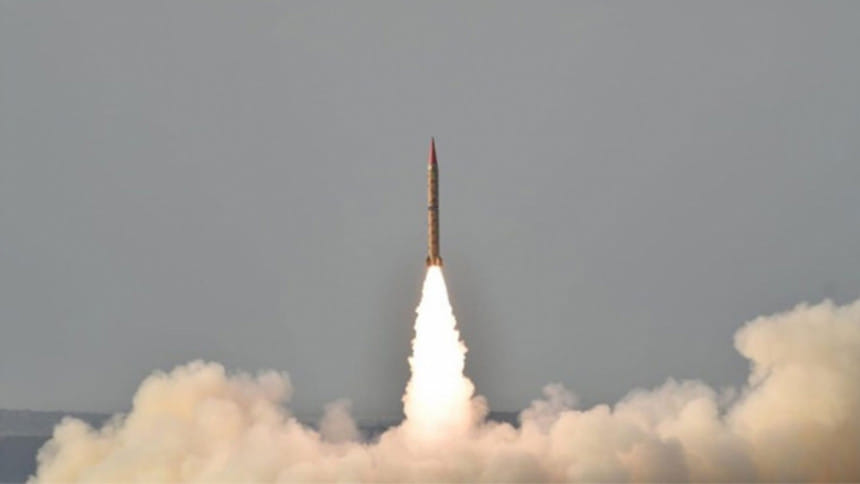Pakistan says wants peace with India, conducts missile test

Pakistan has signalled a willingness to open peace talks with India as Prime Minister Narendra Modi appears set to return to power in New Delhi after an election fought in the shadow of renewed confrontation between the nuclear-armed enemies.
But in a possible warning to India, Pakistan also announced that it has conducted a training launch of a Shaheen II, surface-to-surface ballistic missile, which it said is capable of delivering conventional and nuclear weapons at a range of up to 1,500 miles.
"Shaheen II is a highly capable missile which fully meets Pakistan's strategic needs towards maintenance of deterrence stability in the region," Pakistan's military said in a statement that made no direct mention of its neighbour.
On Wednesday, Pakistani Foreign Minister Shah Mehmud Qureshi spoke briefly with his Indian counterpart at the sidelines of a meeting of the Shanghai Cooperation Organization member states in the Kyrgyz capital, Bishkek.
"We never speak bitterly, we want to live like good neighbours and settle our outstanding issues through talks," he said following the meeting.
The remark follows months of tension between the long-time rivals, which came close to war in February over the disputed region of Kashmir, which both sides have claimed since independence from Britain in 1947.
Following a suicide attack in Kashmir that killed 40 members of an Indian paramilitary police force in February, Indian jets launched a raid inside Pakistan, striking what New Delhi said was a training camp of Jaish-e Mohammed, the radical group that claimed the Kashmir attack.
In response, Pakistan conducted a retaliatory strike of its own and jets from the two countries fought a dogfight in the skies over Kashmir during which an Indian pilot was shot down and captured.
Amid international pressure to end the conflict, Pakistan returned the pilot and there were no further strikes but tensions remained high, with regular exchanges of artillery fire from both sides in Kashmir.
Pakistan has also kept part of its airspace closed to international air traffic, disrupting flights to India and other parts of the region.
Prime Minister Imran Khan has repeatedly offered to start talks with India to resolve the Kashmir issue, and officials have said that they hoped the process could start once the election is concluded.
Khan himself said last month he believed there was more prospect of peace talks with Indian if Modi's Hindu nationalist Bharatiya Janata Party (BJP) won the election.

 For all latest news, follow The Daily Star's Google News channel.
For all latest news, follow The Daily Star's Google News channel. 








Comments